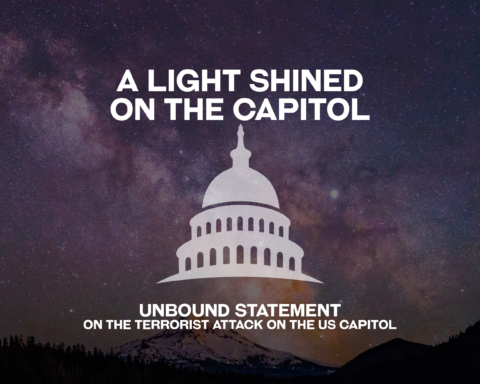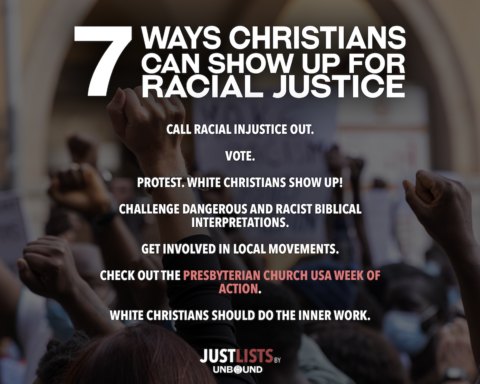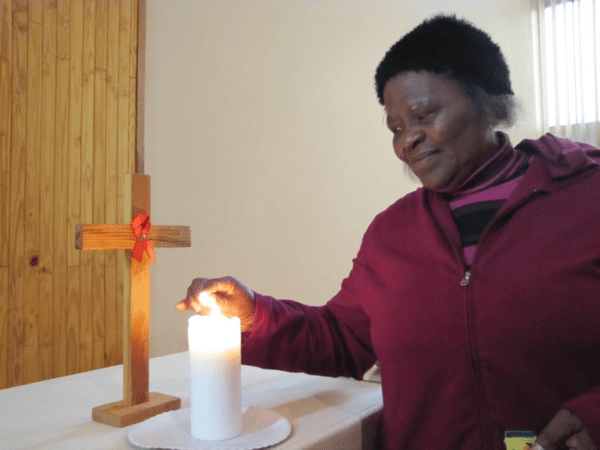Watching the PC(USA)’s Task Force to Review and Help Reform Drug Policy in the United States

Months earlier, the process had already begun.
Members of a task force appointed by the Advisory Committee on Social Witness Policy of the Presbyterian Church of the United States of America had convened twice, once in Richmond, California, and once in El Paso, Texas, and had held hearings for the purpose of obtaining information and perspectives on the War on Drugs. My involvement in this activity began when my former pastor, Rev. Laurie Kraus, emailed me that one of her colleagues at the national offices of the PC(USA) had told her about the work of the task force, which was down a member. While their focus was on ways to end the “war on drugs,” this also entailed a broader review and critique of drug policy in the United States. She immediately thought of me, a longtime elder, because I had spent the previous 42 years studying drug use in various forms and cultural contexts. After initial contact, I was invited to attend the third convening of the task force, this time in Denver, Colorado.
Members of the group that met in Denver from June 18 through June 20 included an acting general presbyter, a drug abuse counselor, a judge, a legal expert, an ethicist, a social worker, and a human rights researcher with extensive experience in Mexico and Central America. [1] As they had done in each of the other meeting sites, they listened to invited speakers from various local organizations and congregations who commented on their own responses and adaptations to the changing legal status of marijuana in the State of Colorado. I filled in some of the needed scientific background on questions of drug use and its consequences, but their discussion of drug use impressed me as acutely aware of key social aspects and areas of injustice.
___________________________________________
Our studies showed that many of the consequences of illegal drug use were attributable to the drugs’ illegality – not their effects on the mind or body.
___________________________________________
In particular, they had all read Michelle Alexander’s book, The New Jim Crow: Mass Incarceration in the Age of Colorblindness, and consequently, they had arrived at the thoroughly warranted conclusion that the war on drugs runs on the tracks of race. They were hearing mostly about marijuana use and weighing conclusions about the various harms attributed to it. They recognized that worldwide efforts by the United States to curb production of drugs had generally failed. They also expressed a healthy unease in contemplating the legalization of any new drug, balanced with an acute awareness of the tragedies occurring every day on the streets and in the prisons.
 I came into these conversations as the only participant with an academic background in research on drug use, and I welcomed the opportunity to endorse, as a drug researcher, the kinds of discussions the group was having. Research on people who engage in socially disapproved behaviors has dominated my professional activity for the last three decades. I have studied patterns of marijuana smoking, poly-drug consumption, self-injection, crack use, and sex trade. These studies have relied on a number of methods, including direct observation of risky behaviors, in-depth interviewing of drug users, qualitative analysis of textual materials, focus groups, survey methods, secondary data analysis, results of physical examinations, and laboratory techniques for determining immune status, viral load, and/or recent drug consumption. I have conducted studies funded by the National Institute on Drug Abuse and the National Institute of Mental Health.
I came into these conversations as the only participant with an academic background in research on drug use, and I welcomed the opportunity to endorse, as a drug researcher, the kinds of discussions the group was having. Research on people who engage in socially disapproved behaviors has dominated my professional activity for the last three decades. I have studied patterns of marijuana smoking, poly-drug consumption, self-injection, crack use, and sex trade. These studies have relied on a number of methods, including direct observation of risky behaviors, in-depth interviewing of drug users, qualitative analysis of textual materials, focus groups, survey methods, secondary data analysis, results of physical examinations, and laboratory techniques for determining immune status, viral load, and/or recent drug consumption. I have conducted studies funded by the National Institute on Drug Abuse and the National Institute of Mental Health.
Much of my experience has involved participant observation of drug users in their natural habitats, and I have several colleagues who have conducted similar studies. Our studies showed that many of the consequences of illegal drug use were attributable to the drugs’ illegality – not their effects on the mind or body. I did not inflict my c.v. on the group, but I have also seen massive damage from some kinds of drug abuse, much of which should be preventable or treatable.
___________________________________________
The task force identified the problems related to drug use as health problems, not police or security problems. Based on our experience, my colleagues and I would concur.
___________________________________________
My colleagues and I, who in aggregate have engaged, with the support of NIH (National Institute of Health) and CDC (Center for Disease Control), in direct observational studies of drug use, have attempted several times to obtain funding for forums in which we would have the opportunity to compare notes on the harms that we have seen in the field—partly caused by bad policies. Unfortunately, this kind of support has not been forthcoming from NIH sources, because “harm reduction” is still political anathema in Washington and Bethesda. (Despite evidence across all cultures that some percentage of the population will use drugs, including alcohol, often without addiction, the US focuses primarily on individual recovery). Private sources within the United States have also been unresponsive to our proposals for support of this kind of public engagement of our research.
 Therefore, I was very heartened to see a church-sponsored group having the kinds of conversations we had envisioned. Furthermore, I could see that the group was using the information available to them to question the wisdom of continuing the war on drugs. That led to my reinforcing the group’s discussions by adding my interpretation of the research to-date on effects of illegal street drugs. The group’s report to this General Assembly reflects both the discussions that had taken place in Richmond and El Paso, as well as the ones that ensued in Denver and Charleston.
Therefore, I was very heartened to see a church-sponsored group having the kinds of conversations we had envisioned. Furthermore, I could see that the group was using the information available to them to question the wisdom of continuing the war on drugs. That led to my reinforcing the group’s discussions by adding my interpretation of the research to-date on effects of illegal street drugs. The group’s report to this General Assembly reflects both the discussions that had taken place in Richmond and El Paso, as well as the ones that ensued in Denver and Charleston.
The following recommendations summarize the task force’s conclusions; the summarized conclusions are in bold, my comments are in regular typeface. I will also pick up my outsider’s perspective with a few words at the end about this process of preparing church reports on social problems. Here are their general policy directions:
- Policies on drugs, health, and justice must respond to our theology. That sovereign love and that Spirit guide our work to transform drug policy. We are, after all, Presbyterians who assume all people to be beloved of God.
- Make drug and alcohol policy evidence-based. After theological considerations, the committee recommended that scientific findings guide the formation of future policy.
- Drug addiction is a disease, and should be treated first by health professionals familiar with chemical dependency. Quibbles with this concept are entangled in semantics. People whose drug use repeatedly gets them into trouble can conceivably help themselves, but biotherapeutic and psychosocial clinical attention can also help.
- Drug addiction is also a spiritual condition that calls for holistic, communal, and voluntary forms of recovery, to complement medical treatment and therapeutic techniques. Perhaps the most important stage of treatment for addiction is aftercare in community context. My colleagues and I have repeatedly found this to be the case.
- Redirect resources to public health care. The task force identified the problems related to drug use as health problems, not police or security problems. Based on our experience, my colleagues and I would concur.
- Persons should not be arrested because of substances they put into their bodies. This item is actually somewhat redundant with #5; if policy addresses drug use as a health issue, it is no longer pursuing punishment of drug users.
- Social caring, social pressures, and civil society are key to prevention and recovery. My drug researcher colleagues have repeatedly found that, when people in a cultural context consistently place social limits on drug use and discourage violation of those limits, problems related to drug use become less prevalent.
- Everyone should have access to essential medicines, including new applications of currently controlled substances. The war on drugs should not cause undue suffering among people in physical pain. For example, responsible physicians’ records should be the principal criterion for determining unnecessary dispensation of opioid analgesics.
- Bring racial, economic, and gender justice to drug policies. Most recent studies of drug-related arrests show how poor people of color have comprised the majority of related arrests and receive harsher punishments, despite the important gains of drug courts. [2]
- Children and adults fleeing drug war violence are not threats to our security; we should greet them with asylum and sanctuary. Most anthropologists who study drug use have done so in communities with multi-ethnic populations including immigrants. Typically, immigrants learn to use street drugs after being in the United States; they flee the corruption and violence of gangs and militaries feeding—one way or the other—the enormous US demand for drugs.
- In the United States, racism is a problem primarily of white people that must be addressed by and in majority white communities. Researchers in many parts of the United States have seen the unintended consequences of policy that in fact targets people of color, incarcerating them and abridging their rights. Effectively racist legislation and enforcement emerge from areas with predominantly white populations that have little empathy for inner city lifeways.
- Address economic causes of involvement in drug production and traffic. None of the main drug commodities are intrinsically valuable. Their price is directly related to the risks necessary to deliver the product to the consumer. In environments of poverty and stunted opportunity, choosing to deal drugs may be the most rational choice.
- Reduce police violence and the use of military weaponry, surveillance, and tactics by the police. Police presence is the key in this recommendation. If police are already embedded in the community, the need to arrive in full force disappears.
- The United States should not export punitive drug policies and militarized conflict to other countries. I have watched USAID do that repeatedly, and it is a waste of U.S. taxes, accomplishing nothing, except increasing corruption and violence, and displacing populations.

Photo Credit: Zarah Patriana, Global Exchange
Much of these policy directions are well-grounded in what I understand to be the accumulated knowledge of research on drug use over the last 70 or so years. The specific recommendations to shift from the “Punishment” to “Healing” in the Report’s title are consistent with them. I therefore respectfully endorse the task force’s report, entitled “Healing Before Punishment: Why Presbyterians Seek to End the War on Drugs.”
My final outsider observation, however, is that the study team worked with great intensity and urgent concern for drug policies still causing great harm. Many of their specific recommendations should have been adopted long ago. Yet their report went to a parent body, the Advisory Committee on Social Witness Policy, whose members are more cautious and less knowledgeable about drugs and alternatives to our country’s “prohibitionist” approach to controlling them. The parent body determined to put the report forward as a study for wider debate in the church—beyond the four excellent hearings that were held. This decision may be wise in some respects, as some of the recommendations are challenging, but in my view there is immediate need for the church’s voice to help stop a very counter-productive “war on drugs.” I personally wanted all of the recommendations to go forward for full approval at this General Assembly.
________________________________________________________________
[1] The original study team, I am told, also included a person with a close relative in prison, one of the list of qualifications and experience in the mandate. Cost and time limitations apparently kept the group smaller than initially desired.
[2] Because persons coming before drug courts are charged with crimes related to drug use, but generally not simple possession, some members of the task force felt the element of coercion still dominated the process. Others felt strongly that the shifts from jail or prison to treatment and probation were a major gain and a tilt toward the public health approach.
*****
AUTHOR BIO: Dr. J. Bryan Page is Professor of Anthropology and Director of the Interdisciplinary Program in International Studies at the University of Miami, Coral Gables, Florida. He has specialized in the study of drug use patterns in various cultures and subcultures, publishing over 150 articles and book chapters and co-authoring 2 recent books. He has been an elder in the Riviera Presbyterian Church, Miami, Florida for 35 years. His activities include singing in Riviera’s choir and a University sponsored ensemble, participating in mission projects, and playing golf. He owns a shaggy dog and two parrots.
Read ACSWP Report 11-25: “Healing Before Punishment: Why Presbyterians Seek to End the War on Drugs”






Unbound Social